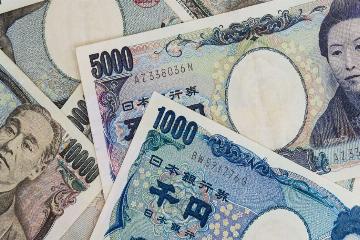The relationship between Japan and the United States has long been perceived as a strong alliance, a partnership that could withstand the test of time and geopoliticsHowever, a closer examination reveals that this bond might be far more complex than it seems at first glanceMany often characterize Japan as a subordinate ally, a follower of American policies, labeling it as merely a sidekick in international relationsThis viewpoint, while popular, simplifies the intricate dynamics of a relationship founded on mutual interests.
The reality of international relations, particularly in the West, is often dictated by pragmatic considerations rather than bonds of friendship or loyaltyIndeed, historical figures like Henry Kissinger have noted, "There is no space for morality in international relations." This raises questions about the depth of ties between nations such as Japan and the U.S., suggesting that the loyalty portrayed may be more transactional in practice.
Nevertheless, it's crucial to consider Japan's perspective on its foreign relations, particularly with China
Advertisements
The Japanese Foreign Minister recently emphasized that China is an "indispensable neighbor" that Japan cannot simply dismissHistorically, Japan has roots in Chinese culture that are arguably deeper than those linked to the West, indicating that its identity and international outlook may not align solely with American interests.
From an American standpoint, the motivation for maintaining a dominant global influence is unmistakableThis need for hegemony necessitates a robust military presence in regions such as EurasiaThe U.Smaintains this influence through military bases and partnerships, where Japan plays a key roleFor Japan, on the other hand, its primary concern revolves around national securityAs an island nation, Japan is capable of ensuring its own domestic safety to a large extentHowever, it faces unique vulnerabilities when it comes to securing crucial maritime routes, particularly in the South China Sea, which is vital for its trade and energy needs.
As we explore Japan's economic landscape, it becomes evident why Tokyo might be reluctant to follow the U.S
Advertisements
lead unconditionallyDespite its military reliance on America, Japan harbors ambitions to outpace the U.SeconomicallyThe economic tensions of the 1980s, when the U.Ssought to curb Japan's rising economic prowess, set a historical precedent—one that resonates in today's economic policies.
Recently, the Federal Reserve's decision to lower interest rates would typically suggest a depreciation of the dollarSurprisingly, the opposite has occurredThe U.Sis now poised to exploit the dollar's strength in a renewed monetary contest in Asia, putting further pressure on Japan's currency and its economic strategy.
In recent weeks, fluctuations in the U.STreasury market, particularly the yield on 10-year benchmarks exceeding 4.6%, suggest rising economic uncertaintyThis jittery environment has a ripple effect on global markets, with reports indicating that the Japanese yen could depreciate further against the dollar—potentially reaching a startling 170 yen per dollar by the end of 2025, according to analyses by financial experts.
Currently, the rise of the dollar and the depreciation of the yen stem from a confluence of external shocks and internal economic challenges
Advertisements
Japan is grappling with inflation pressures resulting from the rising costs of energy and raw materials, exacerbated by the yen's sharp declineClimate change further complicates matters as it drives up agriculture prices, hitting hard at an already vulnerable sector of Japan's economy.
Decades of deflation have bred a pervasive pessimism about Japan's economic futureThe specter of an aging population compounds these challenges, forcing the Japanese government to adopt higher tax rates to cover escalating social welfare costsThis economic malaise leaves little room for optimism, overshadowing potential benefits that a weaker yen might bring.
While one might argue that a depreciated yen could bolster Japan's export capabilities, the current reality presents a stark contrastWith Japan facing fierce competition from Chinese automotive exports and American restrictions in the semiconductor market, the nation’s ability to capitalize on currency fluctuations is significantly curtailed.
This begs the question: why doesn't the Bank of Japan raise interest rates to combat these pressures? The answer lies in Japan's own economic philosophy
- Factors Influencing Energy Futures Market
- Trends in Financial Technology Development
- Trends in Capital Flows in Emerging Markets
- Meeting the Needs of Foreign Enterprises
- Applications of Supply Chain Finance
There appears to be a hesitance to follow such a strategy, even from political figures like Shigeru Ishiba, who after promising interest rate hikes, chose caution insteadThis hesitation is largely due to the overarching influence of U.Smonetary policyJapan's lack of military autonomy means that its economic policies, too, are often viewed through the lens of U.Sdictate, leaving Japan without substantial agency.
In this landscape of diplomatic and economic uncertainty, it becomes increasingly clear that Japan's alliance with the United States is fraught with complicationsWhether navigating the nuances of defense spending, economic competition, or sovereign decision-making, the relationship holds more layers than mere camaraderieIt is one shaped by pressing national interests and the realities of global power dynamics, making it a fascinating topic of analysis and debate.
